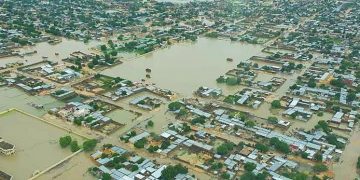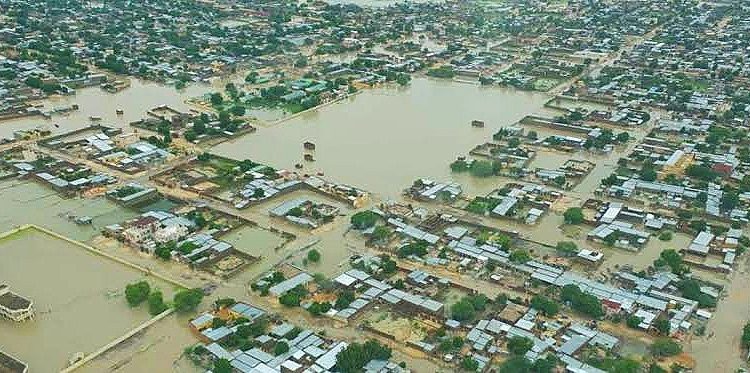By John Ikani
Chad’s transitional President Mahamat Idriss Deby Itno declared a state of emergency on Wednesday over flooding that is affecting more than a million people in the central African country.
Floods are not uncommon during Chad’s rainy season, which usually runs from May to October in its southern regions. But this year, the rains came early and were the heaviest in decades.
“Starting now, a state of emergency will be instituted to better contain and manage this natural disaster,” said Deby in a televised address to the nation.
According to Deby, the heavy floods in the central African country are affecting 636 localities in 18 of its 23 regions, or more than a million people, causing tens of thousands to flee and decimating thousands of hectares of cultivated land.
Even in the capital, N’Djamena, hundreds of people have fled their homes due to flooding in the last few days.
With around half of the city underwater, residents of N’Djamena are building dykes, and using their dugout canoes to leave the flooded areas.
Chad has two main rivers, the Chari and Logone, which flow through its southern provinces and empty into Lake Chad, at the border area with Niger, Nigeria and Cameroon.
This year the lake was fed early on by other tributaries and its water level became higher than that of the two rivers, causing them to flow instead into surrounding towns and villages, said Hamid Abakar Souleymane, a hydrologist at Chad’s National Meteorological Agency.
“You will have noticed that all the countries which share Lake Chad are also flooded and the phenomenon will continue until the end of the year,” he said.
The government has put in place a response plan to provide shelter, food and sanitation, Deby said.
He called on friendly countries and technical and financial partners to support the government’s efforts, which include a response organized around the reduction of impacts and assistance to the victims.
The floods, which followed a severe drought, have led to soaring food prices and left a record 2.1 million people in Chad hungry, according to UN agencies.




































